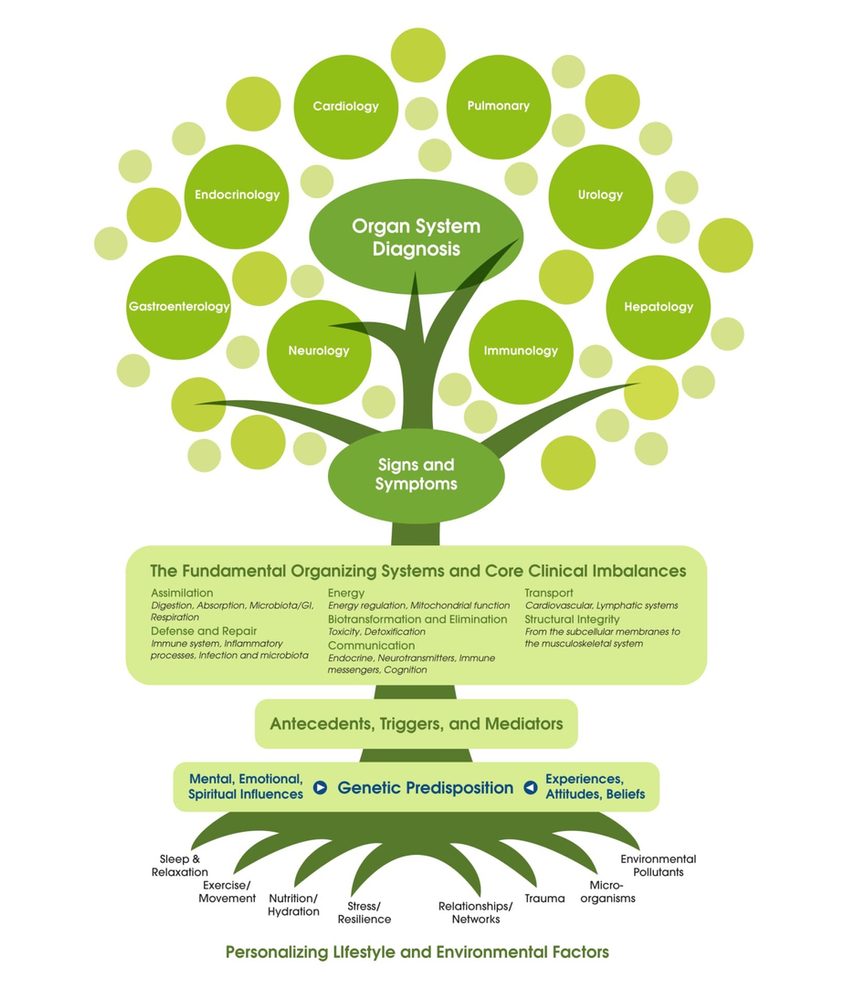If you are considering working a dietitian to address health issues, you might wonder how a functional nutrition approach differs from a more traditional one. Here, I hope to offer some clarity and answer some commonly asked questions.
First, it helps to to understand Functional Medicine, as Functional Nutrition falls under its umbrella. The tree illustration above provides a helpful summary and visual guide. Generally, conventional medicine addresses the signs and symptoms of disease, the visible part of the tree. Function Medicine, on the other hand, examines the underlying lifestyle and environmental factors that could be behind the visible signs and symptoms. These factors include: sleep, exercise, nutrition, stress levels, relationships and genetics. Functional Nutrition uses this model when assess the clinical data from a nutritional evaluation. This type of assessment is patient-centered, where a more traditional assessment would be disease-centered. Based on the Functional Nutrition evaluation and assessment, patients receive a personalized therapeutic intervention, including meal plan, exercise recommendations, phytonutrients and appropriate supplementation.
It is also helpful to contrast a conventional medicine approach with that of Functional Medicine. A conventional doctor uses signs, symptoms and diagnostics to generate a diagnosis. With a diagnosis in hand, most patients will get a standard treatment, usually medication or a procedure, or both. The burden is on the patient to seek out a second opinion or do independent research in order to pursue any alternative treatment. Functional Medicine, on the other hand, acknowledges the unique constellation created by each patient’s genes, environment and lifestyle. By treating the patient, rather than the disease, doctors and dietitians and help individuals achieve vitality, not just the absence of disease.
Using a Functional Nutrition lens, I utilize a nutrition assessment as the basis for a Functional Nutrition treatment. In this session, I gather a thorough medical and nutrition history. My recommendations at the end of this session are always based on your individual case, and address underlying imbalances. Because Functional Nutrition acknowledges that the underlying factors of health are interrelated, we will discuss sleep, stress, environmental exposures, mental health and more. As a part of this comprehensive approach, I help educate patients about their own health so that they can take back control. I also act as a liaison between patients and their doctors. To be clear, I value conventional doctors. We have so much to be grateful for as a result of modern medicine. However, we all deserve to have health care that is more patient centered. Working together, we can help change the course of your medical care so that it serves YOU.
